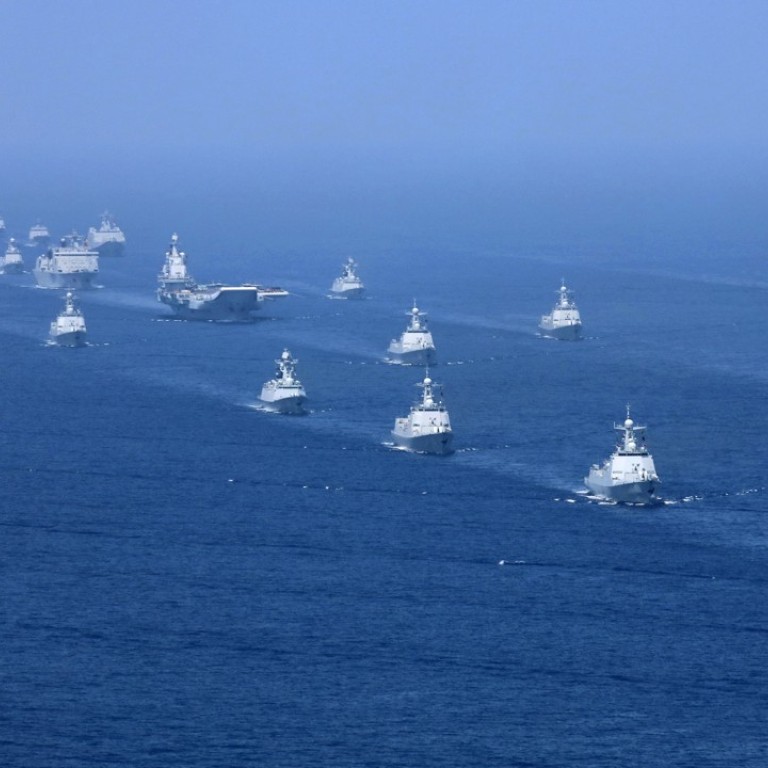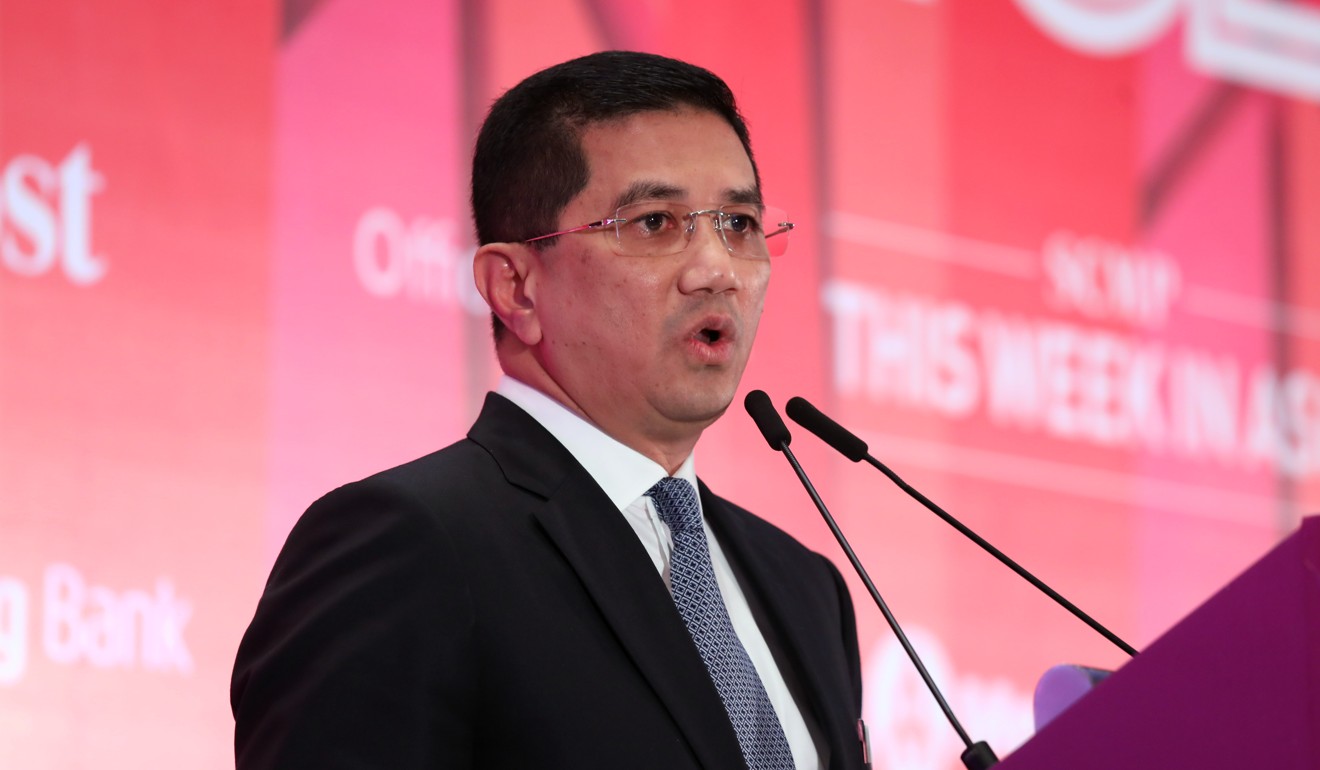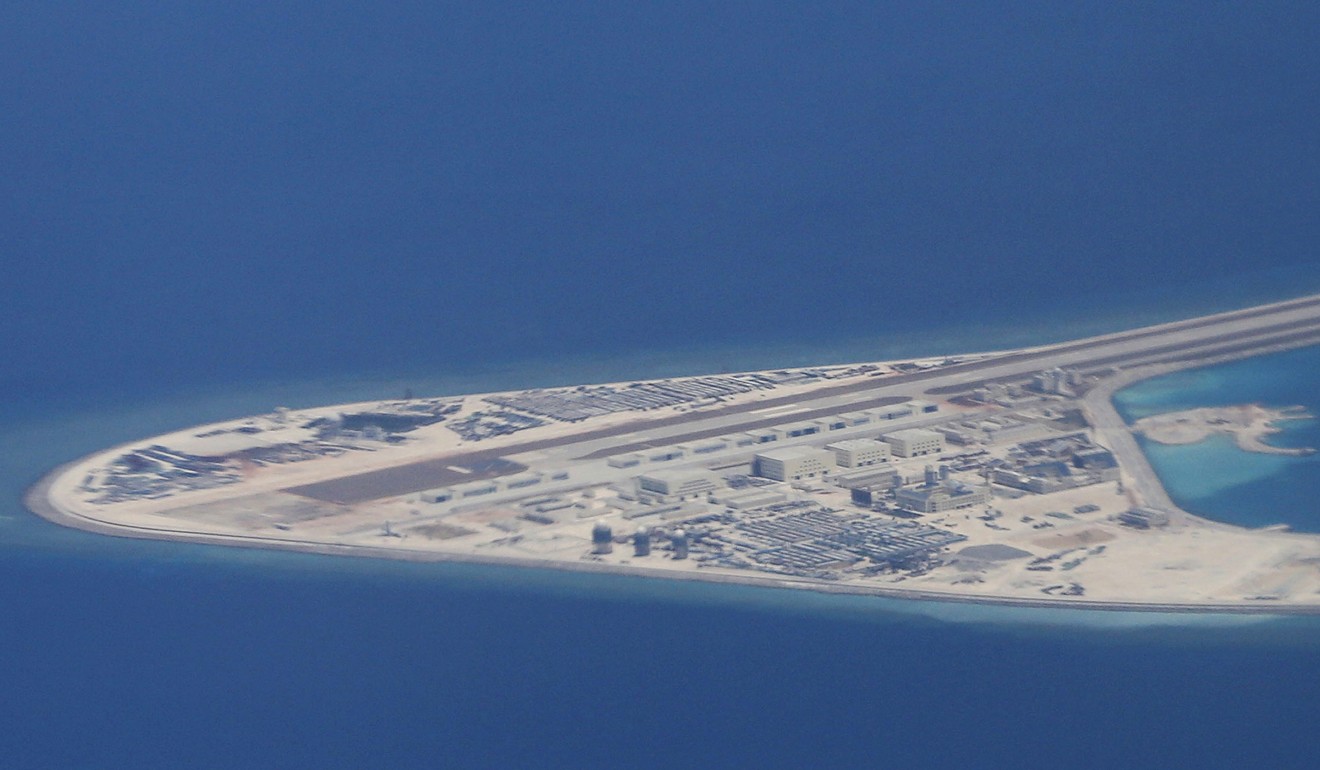
Asia looks to China with ‘admiration – and trepidation’: Malaysian minister Azmin Ali
Praise for Chinese leadership, but South China Sea dispute and Trump’s trade war top the list of concerns on second day of SCMP’s China Conference

The two-day forum – the Post’s first outside its Hong Kong base – was attended by 800 business leaders, diplomats and academics.
Azmin said the new Malaysian government that came to power after the May 9 general election would increasingly see China as a “country to learn from” as it revived a decades-old “Look East” foreign policy first promoted by Mahathir during his 1981-2003 stint in power.
US-China tensions make Asian free-trade deal ‘a priority’
Investors should refrain from judging Kuala Lumpur’s policy through the prism of its recently cancelled Beijing-backed infrastructure projects, said the minister, who is widely viewed as one of Mahathir’s most trusted lieutenants.
Mahathir caused anxiety in Beijing after he announced the cancellation of some US$23 billion worth of Chinese-backed infrastructure projects after he came to power, citing inflated costs and a lack of need.
The region must remain a zone of peace, freedom and neutrality and must not be militarised
“Rather than viewing the new Malaysia with anxiety, I urge Chinese businesses to view us through the prism of hope and opportunity,” Azmin told the conference. “Now, more than ever before, Malaysia is one of the most attractive places in Southeast Asia to do business.”
He added: “Today, we expect China to provide global leadership not just in the economic sphere but in soft power by advancing universal values such as freedom of conscience, mutual respect and justice.”
Azmin said the world was watching geopolitical developments in Southeast Asia closely because of its status as a “bellwether” of the effects on trade, diplomacy and security that China’s rise is likely to have on other countries.

Amid concerns that the South China Sea dispute was resurfacing as a potential proxy platform for US-China rivalry, Azmin maintained his country’s stance that freedom of navigation through the waterway must not be impeded.
“The region must remain a zone of peace, freedom and neutrality and must not be militarised,” he said.
US versus China? Put that cold war talk on ice
Hotly debated by the forum’s 65 speakers were the opportunities springing up because of the current tense geopolitical landscape.
The partnership will create the world’s largest free-trade zone with involvement from the 10 members of the Association of Southeast Asian Nations, China, India, South Korea, Japan, Australia and Japan.
“The conflict between the US and China has provided an impetus [for] an early conclusion of [the partnership],” Norazman said.

The South China Sea dispute and the wider US-China rivalry was vigorously discussed by leading regional security experts in a panel earlier on Thursday.
The Malaysian researcher said the current situation was far less severe than the decades-long conflict between the US and the Soviet Union.
That conflict involved “hot wars” – such as the Korean war, Vietnam war and the Cambodian civil war – as well as the Cuban missile crisis and a long campaign against communists in Malaysia, the researcher pointed out.
China-SE Asia’s cultural ties are as binding as economic ones
“That was the cold war. It was serious stuff. What we are seeing here today is what I would say is an uneasy peace,” Shahriman said. “It would be hysterical … if you see it as [if] we are entering the kind of intense security condition that we saw in the cold war.”
He added: “The United States does not believe that China can be contained, nor does it want to contain China.”
Still, the region’s countries must resist any pressure to take sides if the US-China rivalry does intensify, said Joseph Liow, the dean of Singapore’s S. Rajaratnam School of International Studies.
Liow said: “As the saying goes, if we don’t hang together, we will hang individually.”

